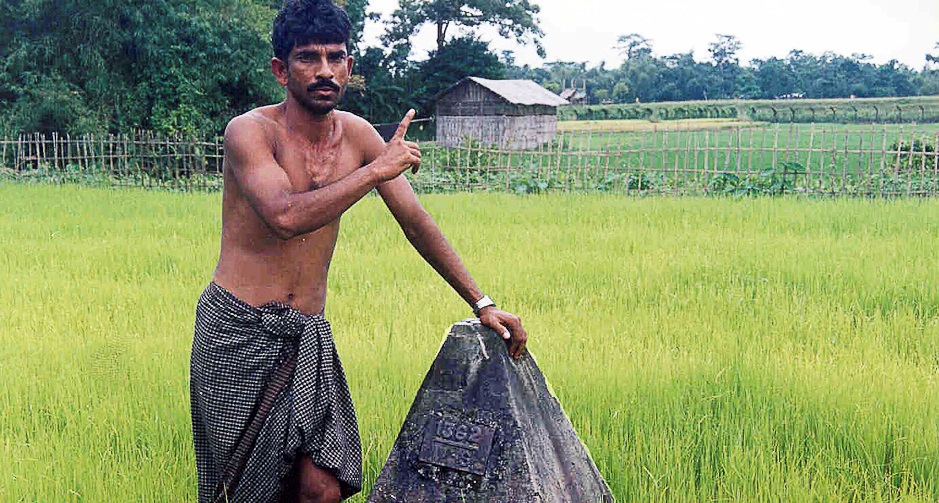India Plays Sectarian Politics in Bangladesh

NEW DELHI: The BJP election campaign that made a distinct differentiation between Hindu and Muslim migrants from Bangladesh received an official shot in the arm when the Indian High Commission officials met with the family of a Hindu Bangladeshi priest Anando Gopal Ganguly who was murdered by Islamist militants on Tuesday. The officials offered the victim’s family financial assistance.
Given that the victim was Bangladeshi in nationality, the Indian High Commission seem to have gone well beyond its mandate more so as there was no such visit to the families of the many others who are being targeted and killed by extremists in Bangladesh--with recent attacks being claimed by the Islamic State--- with increasing frequency.
The move falls in line with the BJP effort to project itself as the representative of Hindus across the globe, portraying ‘Hindu’ and ‘Indian’ as essentially synonymous. In the last month alone, Christians, Muslims, Buddhists and atheist-secularists have all been murdered in similar ways. The families of these victims have not been offered any assistance by the High Commission.
In the election campaign the BJP’s apparent commitment to grant citizenship rights to Hindu refugees from Bangladesh was evident. Ever since its manifesto for the 2014 Lok Sabha polls, the BJP has used the issue of citizenship as a key vote-buyer. “Some Hindus have come from Bangladesh due to religious disturbances. The BJP will give all of them citizenship once we come to power in Assam next year,” said Amit Shah, BJP chief at a rally in Assam in 2015.
Last week, the Home Ministry said it was pushing ahead with draft amendments to the Citizenship Act, in an attempt to make as many as 200,000 Hindu refugees eligible for citizenship. The amendment will also exempt these refugees from being deemed "illegal migrants".
The Ministry is expediting the process, an official said, explaining that "The draft Cabinet note will be put up for approval at the earliest."
The repercussions of this move are likely to generate a political storm in both India and Bangladesh, affecting multiple communities. The Hindutva agenda is likely to perpetuate a growing Hindu-Muslim divide in India while sidelining other communities.
In Assam, where Bangladeshi immigration has long been a contentious issue, the move might exacerbate social tensions. Ethnic friction between the indigenous Assamese and Bangladeshi refugees and settlers first came to a head in the Bongal Kheda ethnic cleansing campaing against Bangladeshis in the 1960’s and 70’s, followed by the violent Assam Movement. Any move to recognise Bangladeshi citizenship in the state contravenes the Assam Accord.
Considering that this move reflects the larger political mandate of the BJP and the RSS, the question now, isn’t how people in Assam will react, but how the BJP will deliver its promise. Their recent victory in the Assam elections has set the tone for changes in the state, and the newly established government will now be held responsible for acting on this.
This controversial step may also stir up a reaction inside Bangladesh. There is a danger that the more Modi’s government tries to act as the protector of world Hindus, the more Hindus in other countries become seen as ‘anti-national’ or ‘foreign’. Whether it be the granting of citizenship or interference in the internal affairs of other states, Modi’s zealous promotion of Hindutva policies may engender a backlash against Hindu communities outside India.
Whether or not this is the case, the move is certain to make migration to India more appealing to Hindu minorities facing discrimination and violence in Bangladesh. The policy may lead to an upsurge in refugees hoping to get citizenship rights in India, and drive the steady cleansing of Bangladesh, something that neither government shows much desire to halt.



